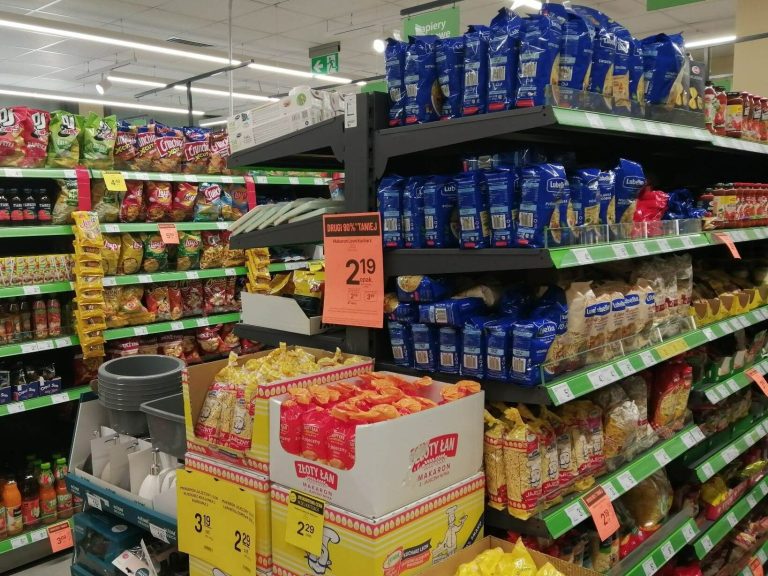Poles divided on the issue of self-service checkouts. Almost 50 percent prefers a machine over a cashier

Today, self-service checkouts can be found in almost all larger stores. For some they are a godsend, for others a nightmare. What do Poles think about them and how did seniors respond? We have the results of a survey conducted by the SW Research agency for Wprost.pl.
Self-service checkouts can be found, among others: in Lidl, Biedronka, Auchan, Carrefour stores, as well as clothing chains. During the pandemic, drugstores such as Rossmann and Hebe were also equipped with them. The trend with this new technology is constantly developing, although there are more and more voices of dissatisfaction on this matter. Some countries or brands want to move away from machines and rely on classic cashiers again. What do Poles think about self-service?
We commissioned a study on this topic by the SW Research agency. We wanted to check how people of different age categories approach this modern solution. Recently, messages have appeared on the Internet that seniors do not want self-service checkouts and prefer cashiers. He pointed out, among others, that in the absence of digital competences, self-service checkouts may pose a problem among such consumers. UOKiK. This is what can be concluded from the results we received from the agency.
Self-service checkouts among Poles. “With pleasure”
800 people of various ages took part in the survey by the SW Research agency, which interviewed Poles. Respondents declared whether they willingly use self-service checkouts and prefer this solution instead of the traditional one, as well as whether they choose it only in specific circumstances. Some replied that they did not choose them at all or only when they had to.
It turns out that almost 50 percent respondents, i.e. 47.5 percent she replied: “I would love to” and revealed that she preferred the machine instead of the classic cashier. The second part of the respondents answered: “Yes, if there is a long queue at the traditional cash register”, “Only if I have to, because there is no other option” or “I don’t use it at all”. The second answer mentioned above took second place – it was chosen by 34.1%. respondents. In turn, 10.1 percent revealed that they only use self-service checkouts when they have to. 8.3 percent respondents informed that they do not use such a solution at all.
The results of the SW Research survey indicate that we are divided, and most importantly, it is difficult to clearly state how much we like self-service checkouts. One thing is certain, most of us use them. This does not mean, however, that we always do it with pleasure and prefer this solution.
Seniors and self-service checkouts. SW Research results
For many people, what may be important is the interest in self-service checkouts among people of different age categories. The youngest respondents were aged up to 24. Most of them, 58.6 percent. unanimously prefers self-service checkouts and only 5 percent he doesn’t use them at all. When it comes to people aged 25 to 34, the situation is similar here – 52.3%. prefer self-service, and only 6.5 percent it doesn’t use this technology at all. In the 35-49 age group, the result is weaker – 44.5%. uses modern cash registers, and most of them use them when they have to or when there are queues. 10.7 percent he doesn’t use them.
In the group of the oldest people, i.e. the one that also includes seniors, the most people answered that they did not use self-service checkouts – it was 11.6%. Despite all this, the majority of people aged 50+ interviewed revealed that they were willing to use devices – 43.9%. As much as 33.4 percent chooses this solution when he sees a long queue at the traditional checkout.
To sum up, it can be said that the older Poles are, the less willing they are to use self-service checkouts. In turn, the youngest definitely prefer such solutions. Does this mean that a future without such technology will no longer be possible? There is a high probability that the trend will stay with us, and in the future even more people will prefer modern solutions. Which do you choose?
The study was carried out on June 18-19, 2024 by the agency SW Research by online interviews on the SW Panel online panel. As part of the study, 808 interviews were conducted with a representative sample of Polish women and men over 18 years of age in terms of the total distribution of gender, age and town size.






